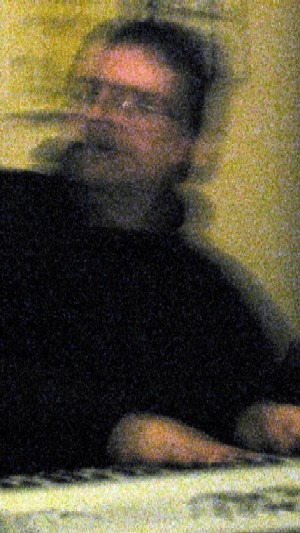Why do people call this guy an artist?
I mean, look at this crap...
Artist Thomas Kinkade under FBI investigation, ex-dealers sayI mean, look at this crap...
Rachel Konrad (AP)
SAN FRANCISCO - The FBI is investigating "Painter of Light" Thomas Kinkade and company executives over allegations that they fraudulently induced investors to open galleries, then ruined them financially.
Relying on information from former Kinkade dealers contacted by federal agents, the Los Angeles Times reported Tuesday that the FBI is focusing on issues raised in civil litigation by at least six former Thomas Kinkade Signature Gallery owners.
At least 10 former dealers in Michigan, Virginia and other states have alleged in arbitration claims that Kinkade - a California native beloved by some but reviled by the art establishment - exploited his Christianity to persuade people to invest in the galleries, which sell only Kinkade's work.
After they had invested tens of thousands of dollars each, the ex-owners said, the company's policies drove them out of business. They say they were saddled with limited-edition prints no one wanted to buy, forced to open stores in inappropriate venues, and undercut by discount galleries peddling the same items at lower prices they couldn't match.
Some also say Kinkade - who claims he's the most widely collected living U.S. artist - schemed to devalue his public company, Media Arts Group Inc., so he could buy it on the cheap. In 2004, Kinkade and other investors paid $32.7 million to take Media Arts Group private, changing its name to Thomas Kinkade Co.
"These dealers became investors primarily because they were believers in faith, love, family and God, and the paintings reflect those values," said Joseph Ejbeh, a Rochester Hills, Mich.-based attorney who tried an arbitration case that began in San Francisco in December 2004. "A lot of these people were pulled into this scheme because of this representation, but what Thomas Kinkade's company did to them was despicable."
Kinkade Co. spokesman Jim Bryant said the Morgan Hill, Calif.-based company was unaware of any investigation by the FBI.
"We assert that there are no legitimate grounds for a federal investigation of any kind," Bryant said in a statement e-mailed to The Associated Press.
Bryant called recent news reports erroneous.
"We are disappointed that rumors and hearsay have been reported in the media in a manner that allows readers to assume legitimacy. The reporting also contains factual inaccuracies," Bryant wrote.
According to the newspaper, the FBI has asked dealers for documentation on retail sales policies, training materials from "Thomas Kinkade University" and correspondence, including e-mail.
FBI Special Agent Brian Wickham in San Jose declined to comment to the Times, citing the bureau's policy of neither confirming nor denying the existence of investigations in progress. He did not return a phone call Tuesday from AP.
Critics - including highbrow art aficionados, satirical bloggers and starving artists annoyed by Kinkade's marketing success - snicker at his work. His paintings typically include tranquil scenes of country gardens, churches, streams and lighthouses in dewy morning light. Many contain images from Bible passages.
Roughly 10 million Americans have a Kinkade painting at home. The wall hangings and spin-off products are said to fetch $100 million a year.
Earlier this year, Kinkade signed a deal with developers in a northern Idaho resort town to help design five lake-view houses that look like those in paintings such as "Beyond Autumn Gate." The houses start at $4 million.




